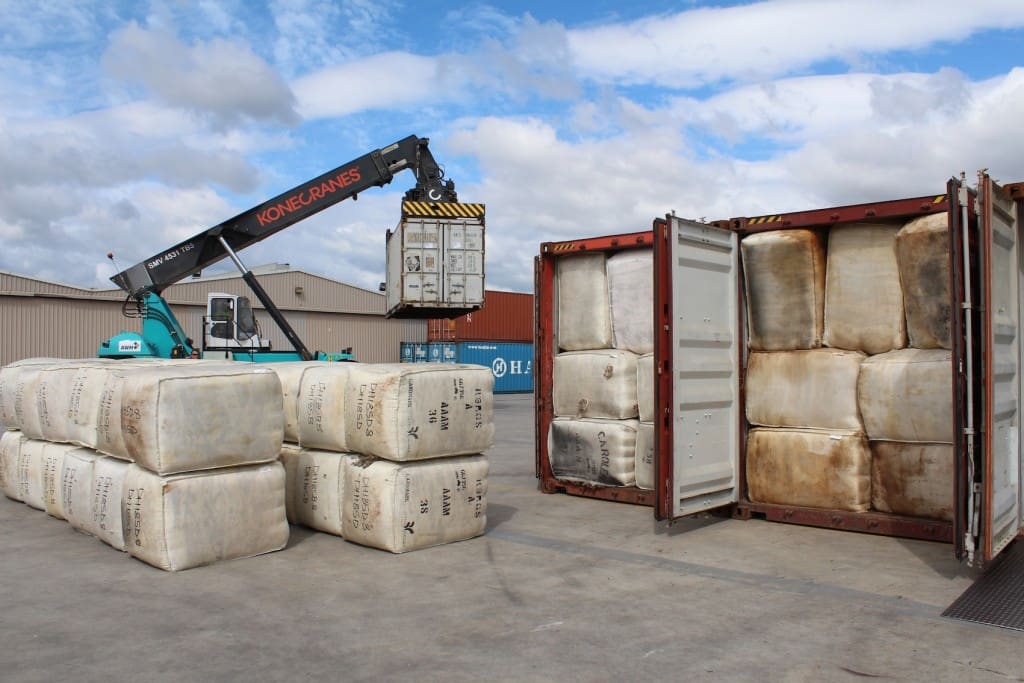
DOMESTIC and global traceability systems for Australian wool and sheep will be reviewed with the help of Federal Government funding.
Peak grower body WoolProducers Australia has won funding for a review and supply chain mapping of traceability systems across the Australian wool and sheep industry supply chains.
WoolProducers is one of 16 recipients to receive a share of $4 million in the first round of funding from the Department of Agriculture, Water and the Environment’ Traceability Grants Program, which is part of the government’s Modernising Agricultural Trade initiative.
The WoolProducers project is seeking to review current traceability systems used throughout the entire wool industry pipeline, identify gaps, weaknesses and duplication in traceability, and make recommendations to improve traceability systems for wool.
WoolProducers is expected to appoint consultants soon, with a final report in late 2022.
WoolProducers president Ed Storey said traceability in the wool industry is generally segmented into on-farm, post-farm and overseas supply chain sectors, with each sector using a different system that is disjointed in providing traceability through the supply chain.
“For example, the National Livestock Identification System has been used for many years now on-farm, but Property Identification Codes is a relatively recent addition for wool tracing.” Mr Storey said.
“The project will assess traceability for several circumstances where the link between the animal and the product is vital, such as emergency animal disease outbreaks, provision of wool specifications for brokers and buyers, or to allow provenance information to be transferred from farm to consumer.
“Independent assessment of existing systems for traceability is key to ensuring that an unbiased review is undertaken so that the most appropriate steps can be followed to build our traceability and provide even greater assurances to our trading partners and customers,” Mr Storey said.
“Once complete, the report will act as the foundation for collaborative work within the wool industry to improve weaknesses in current traceability systems and address gaps that may be identified.
“It is important that the industry works together to build a streamlined, whole of industry system that can help us quickly trace product in the event of a disease outbreak, but also that meets consumer demands relative to sustainability and provenance,” he said.
National Traceability Project identified wool systems ‘disconnect’
The WoolProducers project is be expected to build on industry involvement in the National Traceability Project, led by the department. In these workshops, WoolProducers Australia collaborated with the Federation of Australian Wool Organisations (now Wool Industries Australia) and Australian Wool Innovation to produce the first overview of traceability systems used in the wool industry.
WoolProducers believes the NTP identified a ‘disconnect’ between the systems used across the on-farm, domestic supply chain and the international supply chain (processing) sectors, with no single traceability system existing for Australian wool from farm to garment.
WoolProducers believes it is important that any industry reliant on quality assurance needs to be able to trace product in the event of an emergency animal disease outbreak, and that it must keep up with consumer demands relative to sustainability and provenance. It also believes that reviews of existing traceability systems are undertaken regularly to assess industry’s ability to deliver on these consumer requirements.
The WoolProducers project was supported by several industry groups, including grower representative bodies and supply chain organisations involved in post-farm gate activities, who identified the benefits of the project for the Australian sheep and wool industries.
“We would like to thank the Minister and DAWE for the funding of this important piece of work and also to industry partners who supported this concept,” Mr Storey said.
The Australian Meat Industry Council also won a grant to conduct a pilot study into the use of electronic identification devices in small-stock processing. Direct Livestock was awarded a grant to develop its TruckTracker app for real-time tracking of livestock from farm to destination.

HAVE YOUR SAY